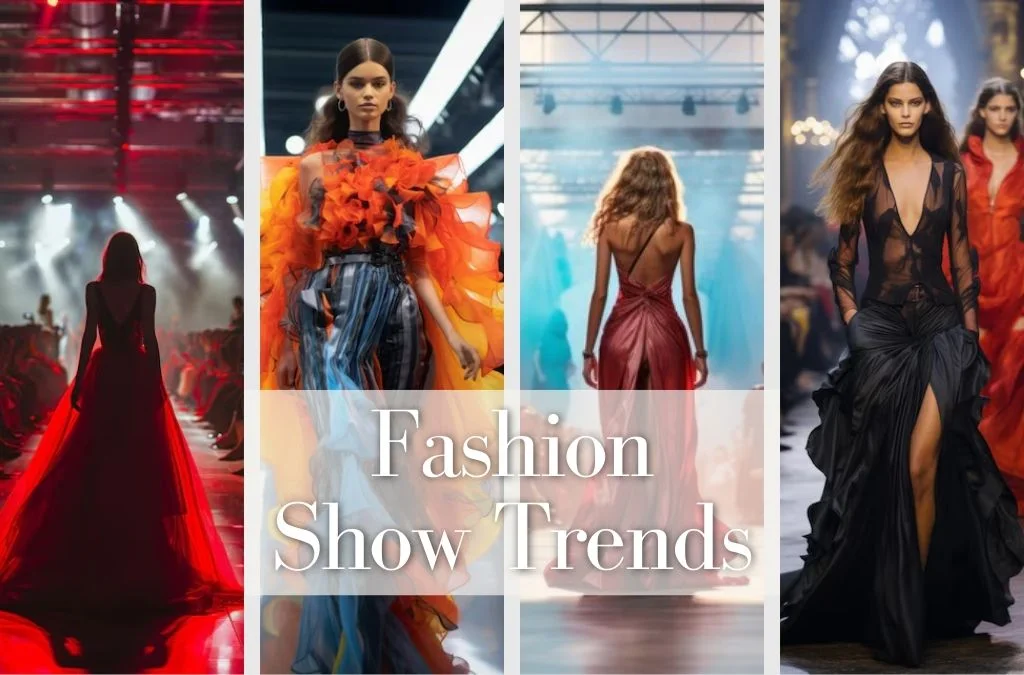Embracing Sustainability
One of the most significant trends in Delhi’s fashion scene is the emphasis on sustainability. As global awareness about environmental issues grows, Delhi’s fashion organizers are making conscious efforts to incorporate eco-friendly practices. From using sustainable materials in their designs to implementing zero-waste policies backstage, these shows are setting an example for the industry.
For instance, leading fashion events like the Lotus Make-Up India Fashion Week have showcased collections made from organic fabrics, recycled materials, and natural dyes. Designers are also partnering with ethical fashion brands and NGOs to promote sustainable fashion. This shift not only appeals to eco-conscious consumers but also sets a precedent for other fashion hubs globally.
Technological Innovations
Delhi’s fashion show organizers are at the forefront of integrating technology into their events. Virtual reality (VR) and augmented reality (AR) are becoming staples in fashion shows, offering immersive experiences for the audience. These technologies allow for virtual front-row seats, 360-degree views of the runway, and interactive features that enhance the overall experience.
Moreover, live streaming has become an essential component, making fashion shows accessible to a global audience. Events like the FDCI x Lakmé Fashion Week have successfully utilized digital platforms to reach fashion enthusiasts worldwide. This not only expands the show’s reach but also democratizes fashion by making it accessible to those who cannot attend in person.
Inclusivity and Diversity
Inclusivity and diversity have become central themes in Delhi’s fashion shows. Organizers are making deliberate efforts to showcase models of all sizes, ages, and ethnic backgrounds. This move challenges the traditional beauty standards and promotes a more inclusive representation of beauty.
Events like the India Runway Week have featured plus-size models, transgender models, and models from various ethnic backgrounds, reflecting the rich diversity of India. This trend is not only progressive but also resonates with a broader audience, fostering a sense of acceptance and celebration of different identities.
Innovative Show Concepts
Delhi’s fashion show organizers are known for their innovative show concepts that go beyond the conventional runway format. These events often blend fashion with art, music, and technology, creating a multi-sensory experience. For example, some fashion shows are held in unconventional venues like historical monuments, art galleries, and urban landscapes, adding a unique flavor to the event.
One notable example is the Amazon India Fashion Week, which has seen shows being held at iconic locations such as the Qutub Minar and the India Gate. These venues not only provide a stunning backdrop but also highlight the cultural heritage of the city, creating a harmonious blend of tradition and modernity.
Focus on Emerging Designers
Supporting emerging talent is another key trend in Delhi’s fashion scene. Established fashion weeks and events are dedicating platforms to up-and-coming designers, giving them the exposure and recognition they need to grow. This focus on nurturing new talent ensures a continuous influx of fresh ideas and creativity into the industry.
The GenNext program at Lakmé Fashion Week is a prime example of this initiative. It provides a platform for young designers to showcase their collections to a wide audience, including industry veterans, buyers, and media. This support helps in the discovery of new talent and keeps the fashion scene dynamic and innovative.
Cultural Fusion
Delhi’s fashion events frequently highlight the combination of modern and traditional looks. Designers draw inspiration from India’s rich cultural heritage and blend it with modern aesthetics to create unique collections. This trend not only preserves traditional crafts and techniques but also makes them relevant in the contemporary fashion landscape.
Shows like the India Couture Week have prominently featured collections that merge Indian textiles and embroidery with modern silhouettes and designs. Delhi’s fashion sector is characterized by this confluence of cultures, which reflects the city’s capacity to respect the past while looking to the future.
Interactive and Engaging Experiences
Audience engagement is a top priority for Delhi’s fashion show organizers. They are increasingly incorporating interactive elements into their shows to create a more engaging experience for attendees. From interactive photo booths and social media walls to live art installations and pop-up shops, these elements make the event more dynamic and memorable.
Additionally, many shows offer behind-the-scenes access through social media, allowing fans to get a glimpse of the preparations and the excitement backstage. This transparency and engagement foster a closer connection between the audience and the fashion world.
Delhi’s leading fashion show organizers are setting new standards by embracing sustainability, leveraging technology, promoting inclusivity and diversity, and supporting emerging talent. Their innovative show concepts and focus on cultural fusion create a unique and dynamic fashion scene that is both reflective of India’s heritage and forward-looking. As these trends continue to evolve, Delhi will undoubtedly remain a pivotal player in the global fashion industry, inspiring other fashion capitals around the world.

